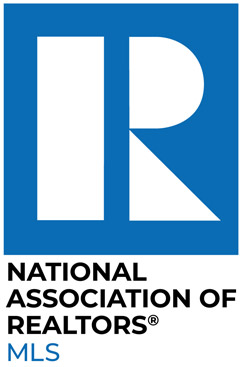The homebuying process may seem endless- attending open houses, making an offer, and negotiating the sale price. So when you get to the inspection phase, it can be tempting to heave a sigh of relief now that your work is basically done. But not so fast! Home inspection is a crucial step in homebuying and shouldn’t be rushed or overlooked. Imagine this: What if you fall in love with a lovely home with major issues lurking beneath the surface? That’s why our real estate experts recommend that you pay attention and take steps to avoid common home inspection mistakes.
Call us if you’re ready to buy a home in Tampa!
Key Takeaways:
- A home inspection is an evaluation of the condition of a home that helps reveal potential issues or repairs.
- A certified inspector should conduct inspections- home inspector licensing requirements vary by state.
- Not researching the inspector, skipping the inspection, and skimming the inspection report are some common mistakes homebuyers make during a home inspection.
Not Researching the Home Inspector
Many homebuyers enlist whoever is recommended (maybe by the lender) to them without doing their due diligence. But did you know that a home inspection is only as good as the inspector carrying it out? As such, you need to work with a home inspector or inspection company that’s licensed and has good reviews and experience. Before enlisting someone, ask them:
- How many inspections have you done?
- How long have you been inspecting properties?
- What are your certifications, training, and qualifications?
While it can be tempting to hire the cheapest option, a good inspector can save you lots of money in the long run.
Not Attending the Home Inspection
Attending the home inspection isn’t required for buyers, but it’s a wise move. That’s because reading the inspection report won’t give you the full picture of the home’s condition. If you don’t see it, you won’t understand it.
The inspection may take the whole morning or afternoon, so set aside ample time. Any home inspector who doesn’t allow you to tag along- that’s a red flag! Typically, the inspector will sit with you afterward to explain things and answer your questions. A skilled inspection will also give you an estimate of how much you’ll need to spend on upgrades and repairs. That’s valuable information as you consider your homebuying budget and what you could ask the seller to cover.
Not Asking the Inspector Questions
Some homebuyers do attend the home inspection. However, they fail to ask the inspector questions. But it’s wise to ask questions when you’re getting your home inspected. If you feel like you’re imposing, take notes as you go and ask questions at the end. Generally, the inspector will point out things as they go. And with every item they bring to your attention, ensure you get the following information from them:
- Is this something you’d fix in your house?
- Do you often see these issues in homes of this age?
- What professional would be ideal to call to fix it?
- How urgent is it to address the issue?
Skimming the Inspection Report
When you receive the inspection report, don’t simply skim it. You should take your time to sit down and thoroughly read it. A skilled inspector will write out an easy-to-read, concise report.
Typically, the inspection report will contain the following:
- A written description of problems or issues found in the house
- Written explanation of the impact of revealed issues
- Pictures of items in need of improvement
- A report summary with an emphasis on issues that need the most immediate attention
Any major issue discovered should include annotations and clear descriptions. Most reports will consist of recommended steps and rate the severity of the problem. Nonetheless, you should take note of all items you need help understanding or are vaguely worded and ask the inspector about them.
Thinking the General Inspection Covers Everything
The main objective of a home inspection is to reveal any major issues with the house before acquisition. That allows you to either ask for repairs before closing or update your offer to consider the financial implications of making the repairs yourself. What many buyers might not know is that several inspections should be considered, not just the general one. For instance, you may need a more specialized assessment if you have concerns about the chimney, roof, mold, pool, foundation, pest issues, electrical/HVAC, or plumbing.
Not Using the Inspection with Your Home Warranty
Once the inspection is done and the repairs have been fixed, it’s an excellent time to discuss buying a home warranty with your real estate agent. Some sellers usually include listing coverage on a property, which can be moved to a full home warranty after the property has moved into your hands. Using the home inspection report as a way to offer information about the home’s systems and appliances’ state can help home warranty providers offer better coverage for your home. A home warranty protects you from unexpected replacements and repairs, so if the inspection shows that there were no pre-existing conditions on a specific appliance that fails, the warranty will cover the service call fee for that appliance.
Waiving The Home Inspection- Totally!
It’s undeniable that waiving the home inspection can make your offer attractive, especially when inventory is low, and help you close faster on a home. However, forgoing the inspection means you forfeit your chance of backing out of the deal if there’s significant damage and costly repairs to be made to the property or learn about illegal renovations or additions that go against the code.
Buy a Home in Tampa!
You should always have your house inspected before closing the real estate transaction. Get all the information that you can ahead of the inspection report. Ultimately, you’ll be better prepared to bring up issues with the seller once you get the report and move into your new place with complete peace of mind. And if you’re ready to buy a home in Tampa Bay, reach out to our real estate pros today!













